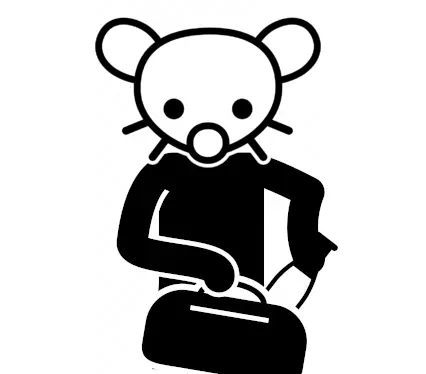Excerpt:
Banksy isn’t happy with Guess’ latest collaboration.
The legendary anonymous graffiti artist had a directive for his followers on Friday, encouraging them—possibly tongue in cheek, possibly not—to visit the Regent Street Guess store in London and steal the brand’s new collection that features his artwork.
“Attention all shoplifters. Please go to Guess on Regents Street. They’ve helped themselves to my artwork without asking, how can it be wrong for you to do the same to their clothes?”



Do you mean that no one should own anything?
The word ‘Property’ has a particular meaning in Socialist theory, and it makes a distinction between personal property (stuff that you own for your own use) and private property, which includes things like the means of production (think factories), natural resources, etc.
Tl;dr version.
Long version:
Yeah, but the person in the replies said “All property is theft”, they didn’t make any distinction (not sure whether that is their actual view, or whether they were just trying to explain this community, but that’s besides the point). And nobody is going to shoplift factories or natural resources, so that distinction doesn’t seem to play a major (or at least direct) role in the context of OP’s question about why this community exists here.
But I have a genuine question about your post, how does personal property differ from the explanation given for private property?
Wouldn’t that apply completely to personal property as well? I always thought that private property was just a special class of things being treated as personal property, when it shouldn’t due to their importance to society. So someone treating a factory the same way they treat a teapot they have in their house, where the former is private and the latter is personal because the former affects the lives of others in a significant way. Or have I got it wrong?
Taken from a reddit post on the subject that I think did a good job of explaining it:
In the case of a grocery store, the argument could be made that the owners of the grocery store chain are exploiting their employees with low wages, and selling the products of other owners who are exploiting their employees as well with their private property, thus justifying ‘taking back’ what was deprived.
On the flip side, It would be very difficult to morally justify shoplifting from a co-op grocery store that sells products from other cooperatives, as at that point no one would be being exploited.
As the person ranting in the replies about how all property is theft, I was explaining why some strains of socialist thought support shoplifting as a form of redistribution from capital to labor, so, yes, you can presume I’m using a socialist definition of property. 😆
It never hurts to specify, presumptions are a shortcut to misunderstandings.
Thanks for this.
You’re quite welcome. ^^